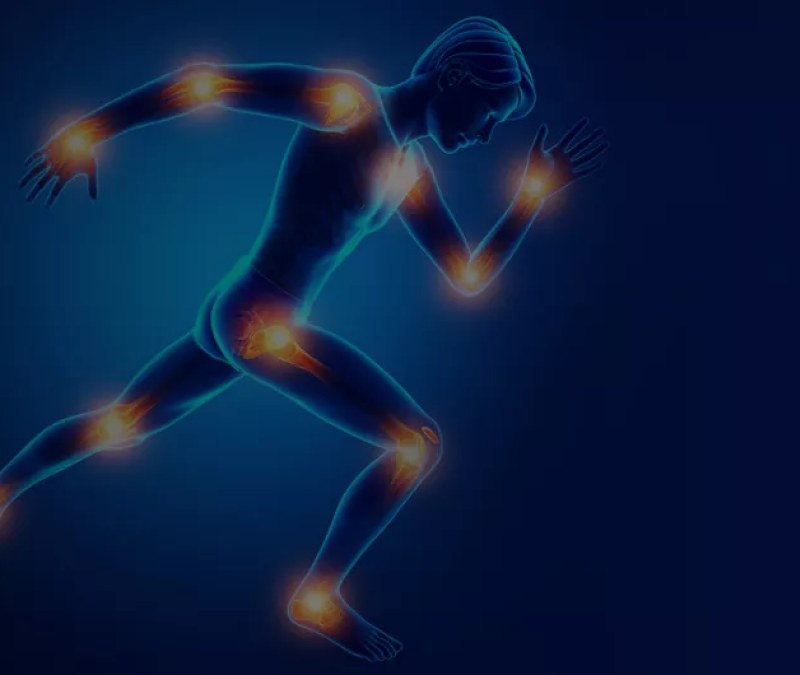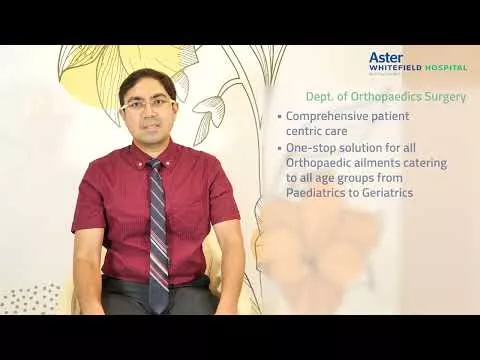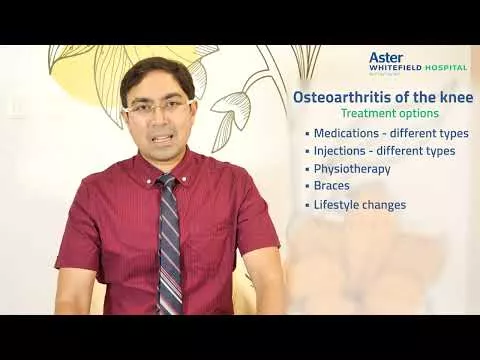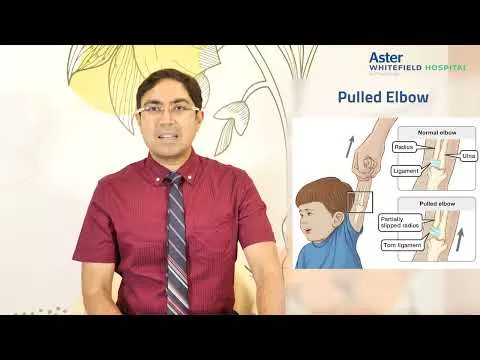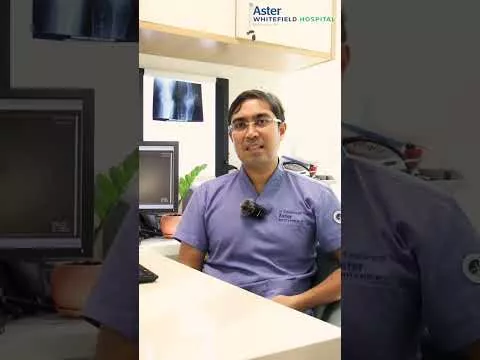The Orthopedic department of Aster Whitefield Hospital is a specialized medical unit that focuses on the diagnosis and management of musculoskeletal disorders, including bones, joints, muscles, tendons, and ligaments. The department is staffed by a team of highly trained surgeons, physicians, nurses, and physical therapists who work together to provide comprehensive care to patients of all ages.
Our orthopedic department is equipped with state-of-the-art diagnostic and treatment facilities, including advanced imaging techniques such as X-rays, USG (diagnostic & Interventional), CT scans, and MRI. The department also offers a wide range of conservative/ non-invasive and surgical management to address a variety of conditions, from sprains to minor fractures to complex joint replacements, sports injury, Polytrauma surgeries, Deformity correction, and spinal surgeries; catering to all age groups (from Pediatric to Geriatric population).
Some of the most common conditions treated in the orthopedic department include arthritis, back pain, bone fractures, joint dislocations, ligament and tendon injuries, and osteoporosis. Orthopedic department of Aster Whitefield Hospital also specializes in sports medicine, which involves the prevention and management of athletic injuries, as well as rehabilitation programs to help patients regain mobility and strength with state of the art Physiotherapy department.
Patients who seek treatment in our orthopedic department receive a personalized approach to care, with a focus on relieving pain, restoring function, and improving overall quality of life. Treatment plans may involve a combination of Lifestyle Modification, Medication, Physical therapy, and Surgery, depending on the severity and type of condition.
All in all, the orthopedic department is a vital component of Aster Whitefield Hospital, offering specialized care and treatment for a wide range of musculoskeletal disorders. With a focus on advanced technology, skilled medical professionals, and personalized care, the department helps patients achieve optimal outcomes and enjoy a better quality of life.
Treatments and services offered:
- Musculoskeletal Disorders
- Complex Trauma / Polytrauma Management
- Minimally Invasive Fracture Surgery
- Paediatric Trauma Management
- Joint Preservation Procedures.
- Hip and Knee Joint Replacement/Reconstruction - Primary, Complex Primary and Revision
- Knee and Shoulder Sports Medicine/Arthroscopy
- Sports Injuries management, Ligament Reconstruction and Rehabilitation
- Acute Orthopaedic Emergencies
- Deformity Correction
- Arthritis Management -conservative/surgical.
- Geriatric Orthopaedics
- Osteoporosis Management
Our Doctors
We have some of the best specialists from around the world, they bring years of experience and offer evidence-based treatment to ensure the best care for you.
Advanced Technology & Facilities
Well equipped with the latest medical equipment, modern technology & infrastructure, Aster Hospital is one of the best hospitals in India.
What is Robotic-Assisted Knee Replacement Surgery?
Robotic-assisted knee replacement surgery is an advanced surgical technique that utilizes robotic technology to assist surgeons in performing total or partial knee replacement procedures with enhanced precision and accuracy. This technology allows for a more personalized approach to knee surgery, potentially resulting in better outcomes and faster recovery times for patients.
Why Choose Robotic-Assisted Knee Replacement with Smith & Nephew?
The Robotic-assisted knee replacement systems are designed to offer:
Precision: Robotic technology allows for highly accurate placement of implants, reducing the risk of complications and improving alignment.
Customization: The system enables surgeons to create a personalized surgical plan based on each patient's unique anatomy, leading to a more tailored procedure.
Consistency: The robotic system assists in maintaining consistent surgical techniques, potentially leading to improved long-term outcomes.
How Does Robotic-Assisted Knee Replacement Work?
Pre-Surgical Planning: Before surgery, detailed imaging (such as CT or MRI scans) is used to create a 3D model of the patient's knee. This model helps the surgeon plan the optimal approach and select the best-fitting implants.
Robotic Assistance During Surgery: During the procedure, the robotic system provides real-time feedback to the surgeon, guiding them with precise movements and ensuring accurate placement of the implants. The surgeon remains in complete control of the surgery, while the robot assists with accuracy and consistency.
Post-Surgical Recovery: After the surgery, patients typically experience less pain and a faster recovery compared to traditional knee replacement. The personalized approach may lead to improved joint function and longevity of the implant.
Benefits of Robotic-Assisted Knee Replacement
Enhanced Accuracy: Robotic technology ensures precise alignment of implants, which can improve knee function and reduce wear over time.
Reduced Trauma: The precision of robotic-assisted surgery can lead to less tissue damage, reducing post-surgical pain and promoting quicker recovery.
Improved Outcomes: With personalized surgical planning and accurate implant placement, patients often experience better mobility and functionality in their new knee.
Shorter Hospital Stays: The reduced trauma and faster recovery may allow for shorter hospital stays and quicker return to daily activities.
Is Robotic-Assisted Knee Replacement Right for You?
Robotic-assisted knee replacement may be suitable for patients with severe knee pain or dysfunction due to arthritis or other knee-related conditions. However, the decision to undergo surgery depends on individual factors, such as the severity of symptoms, overall health, and lifestyle goals. It's important to consult with an orthopedic specialist to determine if this approach is the best option for you.
FAQs
Want to find out more about the treatment? The answer to your questions can be found below.
What is the Orthopedic Department at Aster Whitefield Hospital?
The Orthopedic Department at Aster Whitefield Hospital provides high-quality care and treatment to patients with musculoskeletal disorders. This includes conditions that affect the bones, joints, ligaments, tendons, and muscles.
What diagnostic tests are conducted by the Orthopedic Department?
The Orthopedic Department conducts various diagnostic tests such as X-rays, MRI, CT scans, or ultrasound to accurately diagnose the underlying condition.
What types of surgical procedures are performed by the Orthopedic Department?
The Orthopedic Department performs a variety of surgical procedures, including arthroscopy, ligament reconstruction, joint replacement, and deformity correction.
What is the approach of the Orthopedic Department towards sports injuries?
The Orthopedic Department provides comprehensive care for sports injuries, including diagnosis, treatment, and rehabilitation. They also perform arthroscopy and ligament reconstruction for sports-related injuries.
What is the approach of the Orthopedic Department towards osteoporosis management?
The Orthopedic Department manages osteoporosis through a combination of lifestyle changes, medication, and in some cases, surgery. They aim to prevent the progression of bone loss and reduce the risk of fractures.
What are some common conditions treated in the Orthopedic Department?
The Orthopedic Department treats a wide range of conditions, including musculoskeletal disorders, sports injuries, arthritis, and osteoporosis. They also provide care for pediatric trauma and manage acute orthopedic emergencies.
What are some of the major services offered by the Orthopedic Department?
The Orthopedic Department offers services like evaluation, diagnosis, and treatment of orthopedic conditions, surgical procedures, rehabilitation, and follow-up care. They also specialize in joint preservation procedures, hip and knee joint replacement/reconstruction, and minimally invasive fracture surgery.
How does the Orthopedic Department treat arthritis?
The Orthopedic Department provides both conservative and surgical management of arthritis. This includes lifestyle changes, medication, physical therapy, and in severe cases, joint replacement surgery.
How does the Orthopedic Department handle pediatric trauma?
The Orthopedic Department has a dedicated team of specialists trained in pediatric trauma care. They provide prompt and effective medical care to ensure the best possible outcome for children who have experienced a traumatic injury.
What is the role of the Orthopedic Department in geriatric orthopedics?
The Orthopedic Department provides personalized, age-appropriate care to older adults to help them maintain their mobility and independence. They understand that older adults have unique medical and physical needs, and they tailor their treatment plans accordingly.
Blogs
The source of trustworthy health and medical information. Through this section, we provide research-based health information, and all that is happening in Aster Hospital.

